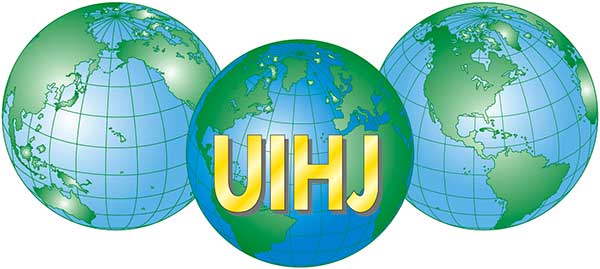Kinshasa, 23-24 October 2024 – The profession of judicial officer is evolving in the face of the rise of new technologies and the transformation of the legal framework. To anticipate these changes, the Training Unit for Judicial Officers in Africa (UFOHJA) organized a training seminar in Kinshasa, under the high patronage of the Minister of Justice of the Democratic Republic of Congo (DRC). Bringing together judicial officers from several African countries, this event aimed to define the new challenges of the profession, to propose innovative solutions and to strengthen professional capacities in the digital age.
Objectives and challenges of the seminar.
The seminar aimed to raise awareness among judicial officers of the impacts of new legislation and technologies, with an overall objective: to adapt the profession to modern realities by guaranteeing quality services and integrating digital tools. In concrete terms, this seminar was intended to:
- Identify new legislation and its impact on the profession,
- Analyse the influence of artificial intelligence and digitization in the offices of judicial officers,
- Encourage the sharing of knowledge and experience between professionals,
- Propose concrete solutions to overcome digital challenges,
- To establish a foundation for the responsible and safe use of technology in the profession.
Legal and Technological Innovations: Summary of the Workshops
The seminar was structured around three workshops and two round tables, each addressing a key aspect of the current challenges for judicial officers.
Workshop 1: The law of new technologies
This first workshop, moderated by Adolphe Lotala, explored the implications of new technologies such as AI on fundamental rights and privacy. Luc Sowah, President of the Chamber of Judicial Officers of Togo, recalled that these technologies, by facilitating the exchange and management of data, require strict security standards to protect the rights of individuals. In the digital age, he stressed, the protection of personal data and transparency must remain priorities.
Workshop 2: Ethics and Challenges of New Legal Technologies
Under the direction of Jean Didier Bidié, Vice-President of the UIHJ, this workshop focused on the ethical and legal risks of automation and artificial intelligence. Hugues Blé Male, from Ivory Coast, showed how AI can transform practices, by automating repetitive tasks such as the management of documents or electronic service. However, participants insisted on the importance of regulating its use to avoid dependence on machines, especially in sensitive areas such as data management.
Workshop 3: Law and Technology, a World Without Borders
This workshop, led by Françoise Andrieux, Honorary President of the UIHJ, highlighted the issue of digital data governance in a borderless context, where the need for uniform rules is felt. Marc Schmitz, President of the UIHJ, presented the Global Code of Digital Enforcement, a framework for the management of digital assets and crypto assets, which sets standards for the seizure and enforcement of digital assets.
Panel discussions: Digitalization and challenges for the profession
The first round table examined the issues related to electronic service, in particular in the context of OHADA law. The discussions highlighted the requirements of reliability and security, which are essential to ensure the integrity of exchanges in a digital context where documents can be easily intercepted or modified.
The second panel explored liability in the use of AI: who is liable for damage caused by AI? These discussions also addressed the status of works created by machines, as well as the impact of autonomous systems on debt collection processes and automated reports.
Recommendations and prospects
At the end of the discussions, participants made four main recommendations:
- International legislation for digital seizures: The UIHJ and OHADA are invited to establish a uniform legal framework for the seizure of digital assets, in order to protect the rights of litigants and to regulate cross-border practices.
- Digital access for judicial officers: OHADA Member States are encouraged to allow the use of electronic service, in accordance with AUPRSVE standards, and to ensure equitable access to technology for all judicial officers.
- Continuing education in digital skills: The technological skills of judicial officers are considered essential to ensure a successful adaptation to new digital tools.
- Protection of fundamental rights: It is recommended that OHADA Member States ensure that judicial officers can access digital technologies in a sustainable manner and with respect for the fundamental rights of individuals.
Conclusion
This training seminar, which was preceded on 22 and 23 October by an internal training on the subject of the Uniform Act on the Organization of Simplified Recovery Procedures and Enforcement Procedures, under the direction of Jean-Didier Bidié, Vice-President of the UIHJ and Jérôme Okemba, President of the National Chamber of Judicial Officers of the Republic of Congo, focused on the impact of technological innovations on the profession of judicial officer, highlighting the opportunities offered by AI and digitalisation, but also the precautions to be taken to regulate their use. For judicial officers, it is essential to continue to adapt to these changes to remain relevant, while ensuring that technologies are implemented ethically and securely.
This seminar ended with the presentation of certificates to the participants, in an atmosphere marked by general satisfaction and hope for a modernized profession, ready to meet the challenges of the future.





